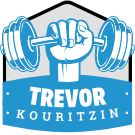What Is Protein?
Protein provides amino acids which are the building blocks for the growth and maintenance of muscle tissues, organs, skin, hair, nails, and certain hormones. Of the 22 amino acids, nine are essential to humans. These include histidine, isoleucine, leucine, lysine, methionine, phenylalanine, threonine, tryptophan, and valine. They are called essential because your body is unable to manufacture them so they must be obtained through diet or supplementation.
How Much Protein Do You Need?
The USDA recommends that Americans get 5-35% of their calories from protein. Remember that this range is set to cover 97-98% of the population. Athletes have higher protein requirements and most athletes would benefit from getting 25-35% of their daily calories from protein.
Vegan Protein Sources
- Peas – Packed with protein and fiber, peas are a fantastic vegan protein source! Peas contain 8 grams of protein per cup. Peas are also a good source of fiber, minerals, and B-vitamins. As if this weren’t enough of a reason to eat peas, peas are also rich in isoflavones (notablydaidzein), phytonutrients which have been linked to a reduced risk of developing breast and prostate cancer.
- Rice- Rice is a great hypoallergenic vegan protein source that fights inflammation, reduces risk of developing certain types of cancer, supports nervous system health, promotes heart health, prevents constipation, controls blood sugar levels, and supports immune system health!
- Amaranth – Amaranth is a gluten free ancient grain that contains a whooping 28.1 grams of protein per cup! Amaranth is the only cereal grain that contains vitamin C and has twice as much calcium as milk! Amaranth is also high in vitamin E, iron, magnesium, phosphorus and potassium.
- Chia seeds – A 1-ounce serving of chia seeds contains an impressive 5.6 grams of protein. Chia seeds are also a good source of omega-3 fatty acids, fiber, antioxidants, iron, and calcium. 1 ounce of chia seeds provides 18% of your daily calcium needs!
- Hemp – Three tablespoons of hulled hemp seeds contains 10 grams of protein, 14 grams of high quality fat, and 2 grams of fiber! Hemp seeds are exceptionally rich in the essential fatty acids linoleic acid (omega-6) and alpha-linolenic acid (omega-3). Hemp seeds are also a great source of vitamin E, phosphorus, potassium, sodium, magnesium, sulfur, calcium, iron and zinc.
- Mushrooms – Mushrooms contain all nine essential amino acids and have a protein DIAAS (Digestible Indispensable Amino Acid Score) of 1, which makes them comparable to animal protein sources! Mushrooms contain zero cholesterol, are very high in beta-glucans and are low in calories, fat, sugar, and carbohydrates!
- Quinoa – Quinoa is gluten-free, high in protein and one of the few plant foods that contain all nine essential amino acids. One cup of cooked quinoa contains 8.1 grams of protein and 5 grams of fiber! Quinoa is also high in magnesium, B vitamins, iron, potassium, calcium, phosphorus, vitamin E and various beneficial antioxidants.
- Spirulina – Spirulina is a natural alga that is incredibly high in protein. The extremely high concentrations of nutrients in Spirulina has led many to classify it as one of the most nutrient dense food on the planet. Spirulina is a fantastic source of the antioxidant phycocyanin, which provides impressive antioxidant and anti-inflammatory effects.
